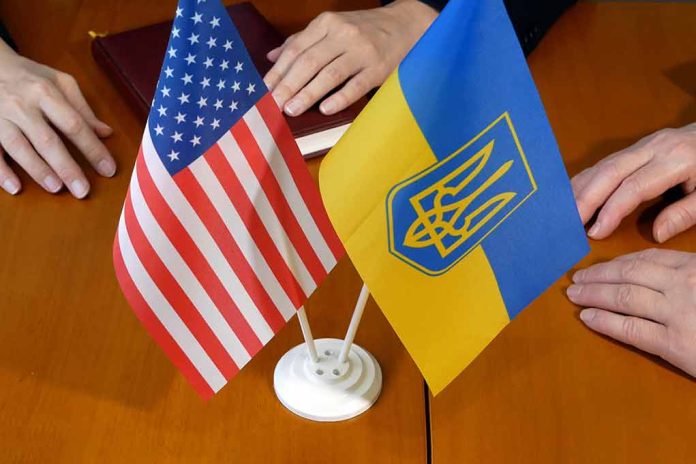
President Trump proposes a deal with Ukraine for rare earth elements in exchange for continued military aid, sparking debates on global mineral resources and geopolitical strategies.
Key Takeaways
- Trump suggests exchanging U.S. military aid for Ukraine’s rare earth elements, highlighting their strategic importance.
- Ukraine possesses significant deposits of critical minerals, including the largest lithium resource in Europe.
- Over 50% of Ukraine’s rare earth mineral resources are in regions annexed by Russia, complicating access.
- China’s dominance in rare earth production and processing has prompted the U.S. and EU to seek alternative sources.
- The proposal underscores the growing importance of rare earth elements in global economy and national security.
Trump’s Proposal: Rare Earth Elements for Military Aid
President Donald Trump has reignited discussions on the strategic importance of rare earth elements by proposing a deal with Ukraine. The suggestion involves securing access to Ukraine’s rare earth minerals in exchange for continued U.S. military support. This proposal comes amid ongoing concerns about China’s dominance in the rare earth market and the critical role these elements play in advanced technologies and national defense.
Trump’s stance emphasizes the significant support the U.S. has been providing to Ukraine. “We’re handing them money hand over fist. We’re giving them equipment,” Trump stated. He continued, “We’re looking to do a deal with Ukraine, where they’re going to secure what we’re giving them with their rare earth and other things.”
President Trump has demanded that Ukraine provide rare earth minerals as payment for the aid the US has provided.
Ukraine has significant deposits of rare minerals including Lithium, titanium, and Zirconium. pic.twitter.com/57p1bKuFVh— Wall Street Mav (@WallStreetMav) February 5, 2025
Ukraine’s Mineral Wealth: A Strategic Asset
Ukraine’s mineral resources have gained increased attention in recent years, particularly in light of the ongoing conflict with Russia. The country boasts commercially relevant deposits of 117 out of 120 most-used industrial minerals, including significant reserves of lithium, titanium, and other critical elements. Notably, Ukraine holds the largest lithium resource in Europe, with an estimated half a million tonnes yet to be tapped.
However, the geopolitical situation complicates access to these resources. Over 50% of Ukraine’s rare earth mineral deposits are located in regions annexed by Russia, with the occupied Crimean peninsula alone holding an estimated £165 billion worth of minerals. The Dnipropetrovsk region, containing £2.8 trillion in mineral resources, faces threats from Russian forces, further highlighting the strategic importance of these deposits in the ongoing conflict.
Global Implications: China’s Dominance and Western Concerns
The focus on Ukraine’s rare earth elements is part of a broader global context. China currently leads in rare earth production, having invested heavily in refining operations and holding numerous production patents. This dominance has raised concerns in the United States and European Union, prompting efforts to diversify supply chains and reduce dependence on Chinese exports.
The strategic importance of rare earth elements extends beyond their industrial applications. Heavy metals, including dysprosium, neodymium, and cerium, are crucial for advanced technologies in telecommunications, renewable energy, and defense sectors. The United States Geological Survey estimates global rare earth deposits at 110 million tonnes, with China holding the largest share at 44 million tonnes.
Challenges and Future Prospects
While the potential for rare earth element production in Ukraine is significant, several challenges remain. The ongoing conflict with Russia has delayed mining plans and led to the occupation of resource-rich areas. Additionally, the extraction and processing of rare earth elements involve substantial environmental concerns, including the use of heavy chemicals and the generation of toxic waste.
As global demand for rare earth elements continues to grow, countries are exploring various strategies to secure reliable supplies. The United States and European Union are investing in domestic production and recycling initiatives, while also seeking partnerships with other nations rich in these critical resources. Trump’s proposal to Ukraine, whether implemented or not, highlights the ongoing geopolitical maneuvering surrounding these valuable minerals and their crucial role in shaping future economic and security landscapes.









